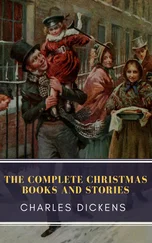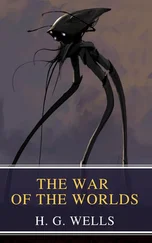Bion. I cannot tarry. I knew a wench married in an afternoon as she went to the garden for parsley to stuff a rabbit, and so may you, sir. And so adieu, sir; my master hath appointed me to go to Saint Luke’s to bid the priest be ready to come against you come with your appendix.
Exit.
Luc.
I may and will, if she be so contented.
She will be pleas’d, then wherefore should I doubt?
Hap what hap may, I’ll roundly go about her;
It shall go hard if Cambio go without her.
Exit.
¶
Enter Petruchio, Kate, Hortensio, [and Servants].
Pet.
Come on a’ God’s name, once more toward our father’s.
Good Lord, how bright and goodly shines the moon!
Kath.
The moon! the sun—it is not moonlight now.
Pet.
I say it is the moon that shines so bright.
Kath.
I know it is the sun that shines so bright.
Pet.
Now by my mother’s son, and that’s myself,
It shall be moon, or star, or what I list,
Or ere I journey to your father’s house.—
Go on, and fetch our horses back again.—
Evermore cross’d and cross’d, nothing but cross’d!
Hor.
Say as he says, or we shall never go.
Kath.
Forward, I pray, since we have come so far,
And be it moon, or sun, or what you please;
And if you please to call it a rush-candle,
Henceforth I vow it shall be so for me.
Pet.
I say it is the moon.
Kath.
I know it is the moon.
Pet.
Nay then you lie; it is the blessed sun.
Kath.
Then God be blest, it [is] the blessed sun,
But sun it is not, when you say it is not;
And the moon changes even as your mind.
What you will have it nam’d, even that it is,
And so it shall be so for Katherine.
Hor.
Petruchio, go thy ways, the field is won.
Pet.
Well, forward, forward, thus the bowl should run,
And not unluckily against the bias.
But soft, company is coming here.
Enter Vincentio.
[To Vincentio.]
Good morrow, gentle mistress, where away?
Tell me, sweet Kate, and tell me truly too,
Hast thou beheld a fresher gentlewoman?
Such war of white and red within her cheeks!
What stars do spangle heaven with such beauty,
As those two eyes become that heavenly face?
Fair lovely maid, once more good day to thee.
Sweet Kate, embrace her for her beauty’s sake.
Hor.
’A will make the man mad, to make [a] woman of him.
Kath.
Young budding virgin, fair, and fresh, and sweet,
Whither away, or [where] is thy abode?
Happy the parents of so fair a child!
Happier the man whom favorable stars
Allots thee for his lovely bedfellow!
Pet.
Why, how now, Kate, I hope thou art not mad.
This is a man, old, wrinkled, faded, withered,
And not a maiden, as thou say’st he is.
Kath.
Pardon, old father, my mistaking eyes,
That have been so bedazzled with the sun,
That every thing I look on seemeth green;
Now I perceive thou are a reverent father.
Pardon, I pray thee, for my mad mistaking.
Pet.
Do, good old grandsire, and withal make known
Which way thou travellest—if along with us,
We shall be joyful of thy company.
Vin.
Fair sir, and you my merry mistress,
That with your strange encounter much amaz’d me,
My name is call’d Vincentio, my dwelling Pisa,
And bound I am to Padua, there to visit
A son of mine, which long I have not seen.
Pet.
What is his name?
Vin.
Lucentio, gentle sir.
Pet.
Happily met, the happier for thy son.
And now by law, as well as reverent age,
I may entitle thee my loving father.
The sister to my wife, this gentlewoman,
Thy son by this hath married. Wonder not,
Nor be not grieved; she is of good esteem,
Her dowry wealthy, and of worthy birth;
Beside, so qualified as may beseem
The spouse of any noble gentleman.
Let me embrace with old Vincentio,
And wander we to see thy honest son,
Who will of thy arrival be full joyous.
Vin.
But is this true, or is it else your pleasure,
Like pleasant travellers, to break a jest
Upon the company you overtake?
Hor.
I do assure thee, father, so it is.
Pet.
Come go along and see the truth hereof,
For our first merriment hath made thee jealous.
Exeunt [all but Hortensio].
Hor.
Well, Petruchio, this has put me in heart.
Have to my widow! and if she [be] froward,
Then hast thou taught Hortensio to be untoward.
Exit.
¶
 I.I. Ibbetson , p. — Isaac Taylor , e.
I.I. Ibbetson , p. — Isaac Taylor , e.
Enter Biondello, Lucentio, and Bianca; Gremio is out before.
Bion. Softly and swiftly, sir, for the priest is ready.
Luc. I fly, Biondello; but they may chance to need thee at home, therefore leave us.
Bion. Nay, faith, I’ll see the church a’ your back, and then come back to my [master’s] as soon as I can.
[Exeunt Lucentio, Bianca, and Biondello.]
Gre. I marvel Cambio comes not all this while.
Enter Petruchio, Kate, Vincentio, Grumio, with Attendants.
Pet.
Sir, here’s the door, this is Lucentio’s house.
My father’s bears more toward the market-place;
Thither must I, and here I leave you, sir.
Vin.
You shall not choose but drink before you go.
I think I shall command your welcome here;
And by all likelihood some cheer is toward.
Knock.
Gre. They’re busy within, you were best knock louder.
Pedant looks out of the window.
Ped. What’s he that knocks as he would beat down the gate?
Vin. Is Signior Lucentio within, sir?
Ped. He’s within, sir, but not to be spoken withal.
Vin. What if a man bring him a hundred pound or two, to make merry withal?
Ped. Keep your hundred pounds to yourself, he shall need none so long as I live.
Pet. Nay, I told you your son was well belov’d in Padua. Do you hear, sir?—to leave frivolous circumstances, I pray you tell Signior Lucentio that his father is come from Pisa, and is here at the door to speak with him.
Ped. Thou liest, his father is come from Padua and here looking out at the window.
Vin. Art thou his father?
Ped. Ay, sir, so his mother says, if I may believe her.
Pet. [To Vincentio.] Why, how now, gentleman? Why, this is flat knavery, to take upon you another man’s name.
Ped. Lay hands on the villain. I believe ’a means to cozen somebody in this city under my countenance.
Enter Biondello.
Bion. I have seen them in the church together, God send ’em good shipping! But who is here? Mine old master Vincentio! Now we are undone and brought to nothing.
Vin. [Seeing Biondello.] Come hither, crack-hemp.
Bion. I hope I may choose, sir.
Vin. Come hither, you rogue. What, have you forgot me?
Читать дальше

 I.I. Ibbetson , p. — Isaac Taylor , e.
I.I. Ibbetson , p. — Isaac Taylor , e.










![Уильям Шекспир - The Works of William Shakespeare [Cambridge Edition] [Vol. 1 of 9]](/books/746589/uilyam-shekspir-the-works-of-william-shakespeare-c-thumb.webp)